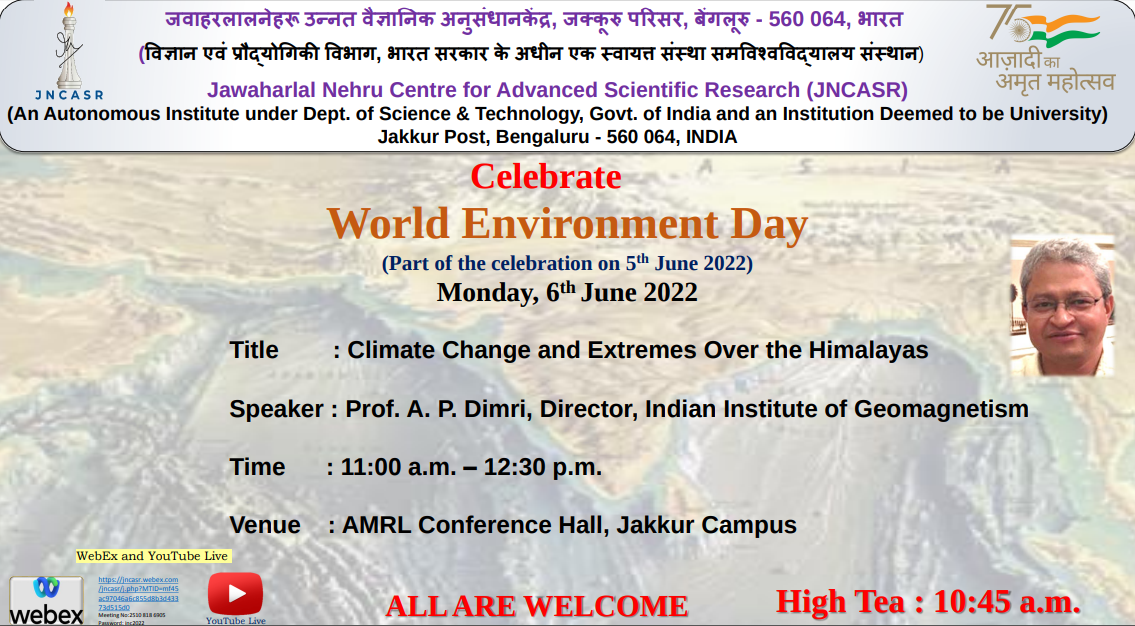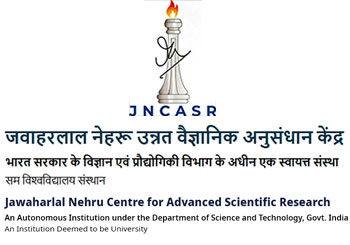World Environment Day celebration: Lecture by Prof.Dimri, Director, Indian Institute of Geomagnetism
As part of the World Environment Day celebration, we organized an expert lecture on climate change by Prof. A. P. Dimri, Director, Indian Institute of Geomagnetism, Mumbai on 6th June 2022, Monday, 11 AM on “Climate Change and Extremes over the Himalayas” at AMRL Conference Hall. Prof. Dimri has delivered the talk offline, and the live streaming was also organized on WebEx and Youtube. The YouTube link is given below:
The lecture focused on the changing climate and it’s heterogeneity over Himalayan Mountains, also referred as the “Water tower of Asia” and third pole of world - owing to its vast glaciers. These glaciers are the major source of fresh water and more than 1.5 billion people’s lives depend on them, and are vulnerable and sensitive to various natural as well as manmade processes. Dr. Dimri discussed in detail about the consistently increasing temperature over Himalayan region, along with seasonal response and altitudinal response or elevation dependent warming. He also mentioned about the complex picture of precipitation with varying signs, magnitude and significance of change along with a varying regional response. He spoke about the uncertainty of climatic models, and biases in Precipitation and temperature - the altitudinal distribution in lower elevations models show dry bias while in higher elevations reduced bias, which was prominently seen in the data. Based on the climatic model, he then discussed about the future projections of monsoonal and sessional mean precipitation. And the elevation dependency of winter warming, and its mechanism explained by model study, including the climate change over different mountainous, Indus, Satluj, and upper Ganga River Basins. The cause of saturated extreme rainfall and cloud burst event were also presented by him.
He concluded that as the available information over the Himalayan region are scattered, insufficient, and uncertain; studies are focused over diverse regions of the Himalaya, a holistic approach to include the complete area under single study is not viable and argued for the need of multi-model based study using regional climate simulations.
Prof. N.S. Vidhyadhiraja, Faculty from Theoretical Sciences Unit and the Dean, Fellowship Extension Programs, JNCASR, introduced the speaker and proposed vote of thanks.
Dr. Jaishri Sanwal Bhatt, DST Women Scientist at the Geodynamics Unit, JNCASR assisted in preparation of posters and organizing the talk.

- Back to previous page
- |
-
Page last updated date:12-03-2025 04:51 PM























